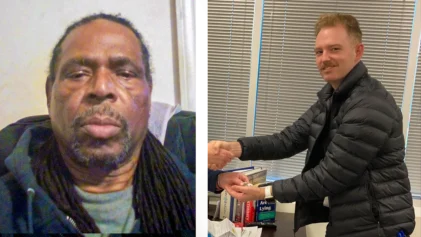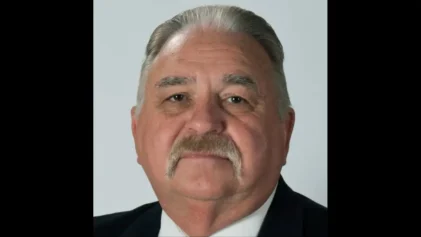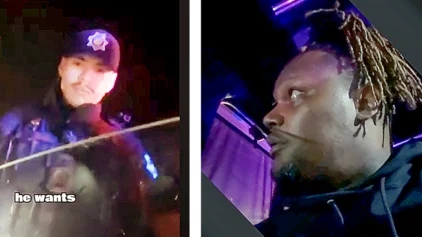A group of Miami High School students is getting the experience of a lifetime, by going to the motherland on the African continent. Edwin Sheppard, founder of Blindfolded International Student and Cultural Exchange Program, is giving Black and brown teens an up-close and personal experience of Botswana, and dispelling negative myths that Africa is flooded in poverty and that instead it is full of riches just waiting to be explored by more African- Americans.
“I wanted to show a different light of Africa, I didn’t want to show the poverty that we’re accustomed to seeing on our media,” Sheppard said.
For Sheppard, 48, of Miami, giving back is his passion and bridging the gap between African-Americans and Africans on the African continent is the foundation for the BISCEP nonprofit he runs. The program provides intercultural learning between African-American high schools and their counterparts in Botswana.
Sheppard first discovered Botswana when he visited the country on his 45th birthday, where he documented his experience. He was amazed at the riches the country has to offer and how it went against much of what he perceived Botswana and other African nations were like based on media portrayals. Inspired by his first visit, he wanted other Black and brown students to get a similar experience and he established his nonprofit and partnered with his high school alma mater and Ledumang Senior School in Gaborone, Botswana for the cultural exchange program. The exchange gives students from the two high schools an opportunity to spend time in either Miami, Florida or Gaborone, Botswana.
Last month, a group of 10 students from Miami Central High School embarked on a 20-hour journey across the Atlantic to Botswana, a country neighboring South Africa on the Southern region of the continent. The students — most of them of African-descent — were selected by school leadership based on their academics and involvement on their school campus.
“I asked a lot of the students had they done any research on where they were traveling, and many of them said no, they didn’t want to do the research because they really wanted to come in and be surprised by everything,” Sheppard said of the students’ approach to going on the trip.
Sheppard says negative stereotypes run deep when it comes to African countries. He recalls four students selected to join the trip had to pull out because their parents feared for their lives.
“Her father surprisingly was afraid for his daughter to travel to Africa because he thought it was really dangerous; he mentioned something about war. In Africa and I think one of the negative things about Africa is the continent is looked at as one country when it’s a continent that has 54 countries, so he didn’t do his research,” Sheppard said.
Once the students finally arrived, they were greeted to a welcome ceremony and dined at a fancy roof-top restaurant. Sheppard says he wanted to send the message that the luxuries of living in the United States are similar to or better in countries like Botswana too.
“They were in tears; the performers actually brought in the students, and they danced with the students, and it was a monumental moment,” Sheppard said.
Sheppard says the trip cost him $42,000 that he pulled together through fundraising. He usually resorts to Facebook Live asking for donations to his nonprofit to help fund the trips for students to experience Botswana.
Throughout their two-week stay, the students got to see historic local landmarks, including the Three Dikgosi Monument. They received a special tour of the government building and got to taste local cuisines and interact with local high school students from Ledumang Senior School.
“Our young people need to know. They need to see this, have the opportunity to touch the ground to meet people to see there are Africans, kids and children that look just like them and speak fluent English,” Sheppard said.
“A lot of them don’t look at us as African-Americans, a lot of them look at us as Black Americans so a lot of them feel we’re out of touch with our African lineage,” Sheppard continued.
Going forward, Sheppard hopes the Miami teens can take their experiences back to their own neighborhoods, friends and family and help break down false and negative stereotypes that African nations are mostly impoverished and run by savages. Sheppard also hopes as more African-Americans learn about different parts of Africa and shy away from negative stereotypes portrayed about the continent, more African-Americans will be encouraged to connect with the motherland like he and students part of the BISCEP program are able to do.


